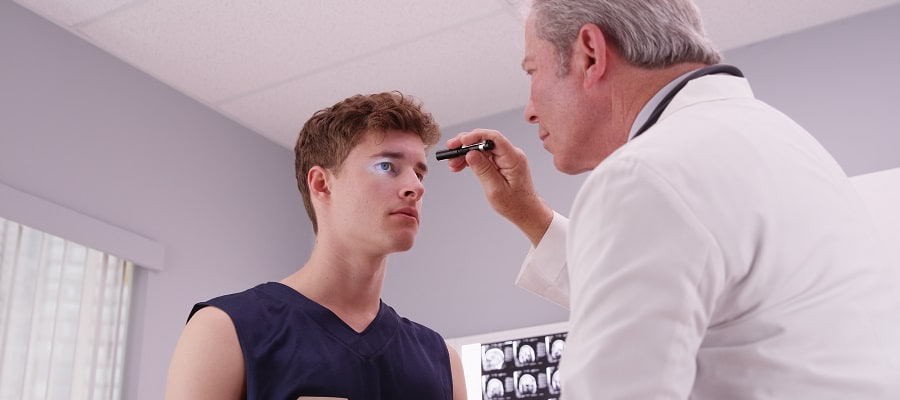Second Impact Syndrome

Imagine you're watching your favorite high school team fight for a win in a close game, and suddenly a star player goes down with what looks like a mild head injury. They go to the bench and don't return to finish and, in fact, are held out for two weeks or more. While that scenario may not result in a win for the team, it's the best possible course of action for the athlete's well-being.
That's because of the very real dangers of second impact syndrome, a rare – but extremely dangerous – condition caused by suffering a second head injury before adequately healing from an initial head injury.
Recognizing Second Impact Syndrome
Second impact syndrome is an often-life-threatening condition that takes place because the already injured brain is unable to regulate the amount of blood going to the brain. As the cerebral blood flow increases, the brain experiences swelling (a.k.a. cerebral edema). This swelling can result in intracranial pressure and lead to cerebral bleeding.
Severe effects can occur within minutes. If an athlete has recently been diagnosed with a concussion or suffered a head impact and is showing the following symptoms after another impact to the head, chest or back, take them to an emergency room as quickly as possible:
- Dilated pupils
- Loss of eye movement
- Unconsciousness
Preventing Second Impact Syndrome
The most important step for preventing second impact syndrome is making sure players do not return to play until they are fully healed and have been cleared to play by a physician.
More and more sports at all levels are implementing concussion protocols. Coaches and trainers are being trained on how to look for the signs of concussion, helping protect players from making a bad situation much worse with a second impact.
As a parent, it's important that you learn to recognize the warning signs of an initial concussion, especially if you are not able to attend practice or a game and see for yourself what happens to your child.
Symptoms of concussion include:
- Headache
- Confusion
- Nausea
- Light and sound sensitivity
- Inability to concentrate
- Vision problems
- Drowsiness
- Loss of consciousness
- Ringing in the ears
- Disturbed sleep
- Irritability
- Personality changes
If these symptoms are present and you know or suspect it's due to a head injury, contact your Boys Town pediatrician or family doctor immediately. They will assess if your child is injured and recommend a period of rest. There are now formal guidelines for Return to Learn and Return to Play that your primary care provider or specialist will use following a head injury.
After an appropriate rest period, your child can take steps toward returning to play, starting with light cardio and moving into more intense movements and eventually full-contact activity.
Sports and Fitness
Pediatric Neurology
